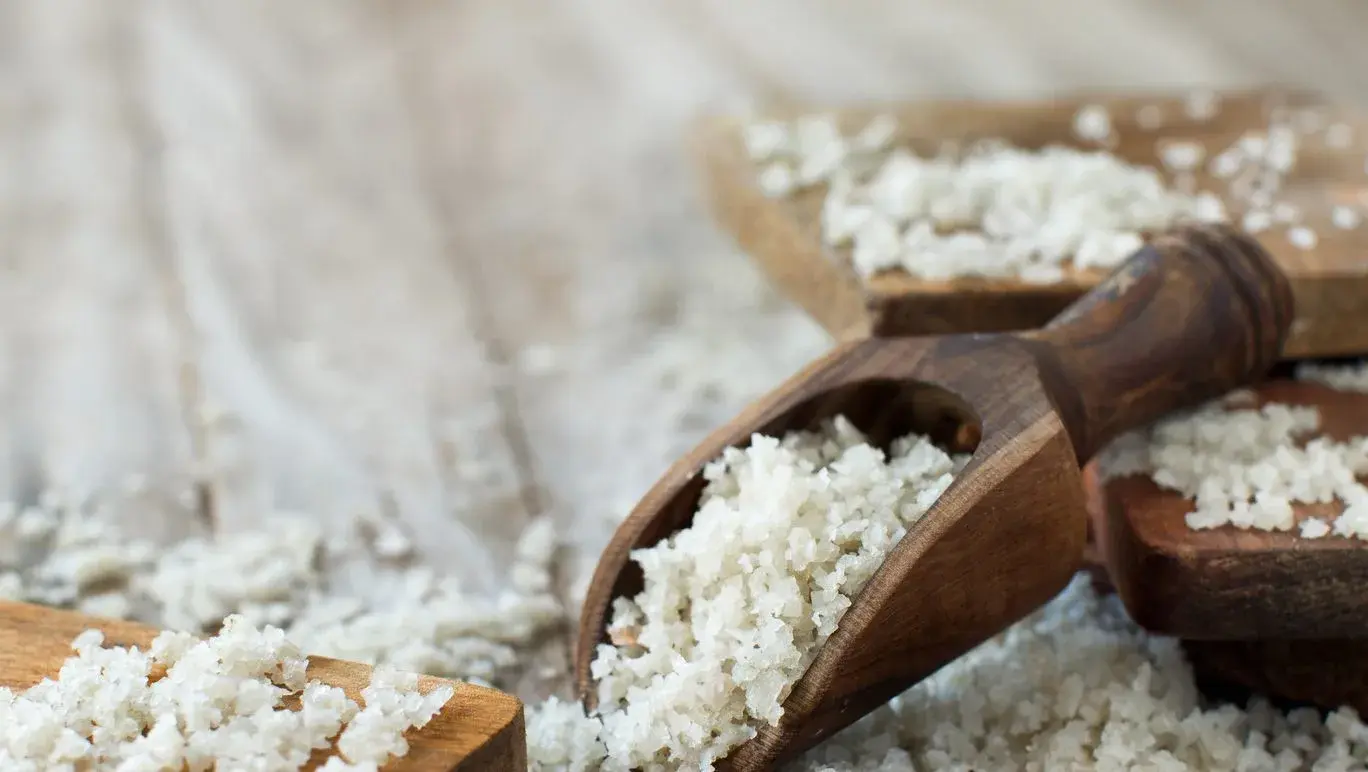Celtic Sea Salt: What is it and are there health benefits?

Celtic sea salt is all the rage right now, gaining popularity on platforms like TikTok. Many have been promoting celtic sea salt benefits like boosting hydration, weight management, lowering blood pressure and more. There’s some research behind it, but not a lot so take it with a pinch of salt.
What is celtic sea salt?
Sea salt is collected from coastlines and made through the evaporation of sea water and therefore undergoes less processing and refining compared to generic table salt. As the name suggests, celtic sea salt is from coastal areas near the Celtic sea.
Due to its origin and lack of processing, celtic sea salt may contain trace amounts of minerals like magnesium, potassium, calcium and other nutrients which may be one of the reasons behind its health benefits.
Celtic sea salt often comes with a premium price tag so you want to make sure it does actually contain meaningful amounts of these minerals. Check the packet for information around this.
These minerals and nutrients can also be found in a healthy, varied diet, for example:
- Food sources of magnesium include green leafy vegetables like spinach, legumes, nuts, seeds and oats.
- Potassium is found in fresh fruit and vegetables.
- Calcium requirements can be met by hitting your recommended serves of dairy foods like yoghurt, cheese and milk as well as plant-based alternatives that are fortified in calcium.
What are the proposed health benefits of celtic sea salt?
The conversation around celtic sea salt has become popular due to the proposed benefits of boosting hydration, weight management, lowering blood pressure and more yet there’s little research to support most of these claims.
Weight management:
There’s limited human research to support this. One study in mice found that consuming mineral rich sea salt may result in improvements to metabolism but it’s important to note that mice studies are very different to human studies.
Blood pressure:
There’s also limited human research to support the claims around blood pressure. One study in rats found that higher salt in general led to higher blood pressure. When comparing sea salt versus refined salt, the sea salt group has less of an effect on blood pressure, likely due to the benefit of potassium and other minerals which they measured in the sea salt.
Hydration:
Some individuals are adding celtic sea salt to their glass of water and suggesting that this improves hydration. There’s a kernel of truth here as sodium is a key component of oral rehydration solutions (electrolyte drinks) that help to replace lost fluids and electrolytes after vomiting, diarrhoea, excessive sweating or dehydration.
However, there’s more to oral rehydration solutions as they should also include other electrolytes like potassium and the correct balance of sodium and glucose to better absorb the fluid. If you’re searching for the best oral rehydration product for you, talk to your healthcare professional.
For the average person, celtic sea salt dissolved in water may help to improve water intake if it means simply drinking more water but keep in mind this means potentially consuming too much sodium which has health impacts (more on that below). Plain water is best for hydration. Eating enough fruits and vegetables like cucumbers and watermelon also provide some water and natural electrolytes without the extra sodium.
Are there any side effects to celtic sea salt?
The sodium from salt is key for normal bodily functions such as nerve conduction, muscle function and fluid balance but most Australians are eating double the recommended amount of salt. All salt, including celtic sea salt, will increase blood pressure for most individuals if too much is consumed over the long term.
Summary
If you like cooking with celtic sea salt because of its flavour, then go for it. If you’re specifically looking for the additional minerals, we recommend checking the pack for more information but keep in mind that these minerals are also found in a healthy, balanced diet.
If you’re stuck on which salt to choose, iodised salt is affordable, readily available and may also support thyroid function with the addition of iodine.
Related articles:
- Are you drinking enough water? 7 signs to find out
- How many servings of dairy do you really need?
- What are the benefits of magnesium?
Reviewed by the Healthylife health experts July 2024.
This article is for informational purposes only and does not provide medical advice, diagnosis, or treatment. Any information published on this website or by this brand is not intended as a substitute for medical advice. If you have any concerns or questions about your health you should consult with a health professional.
